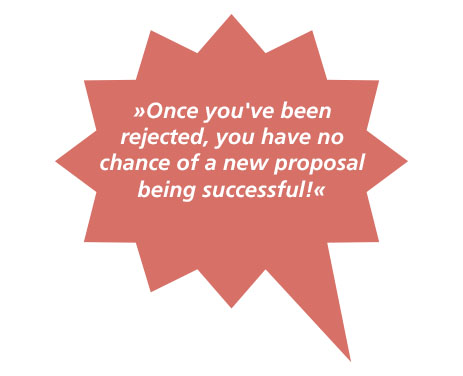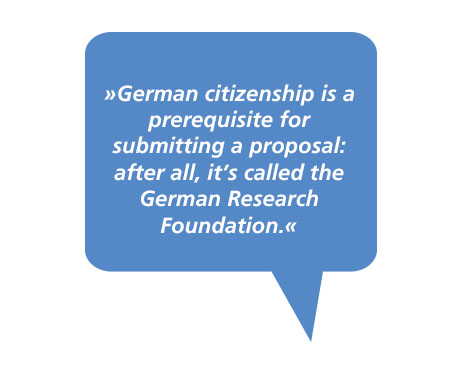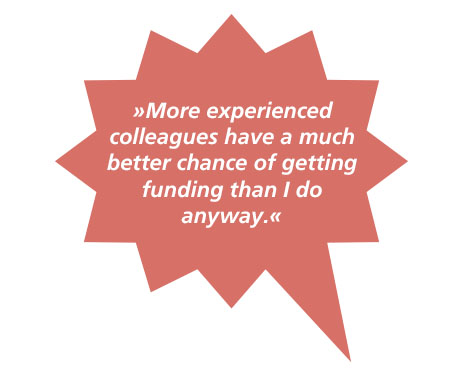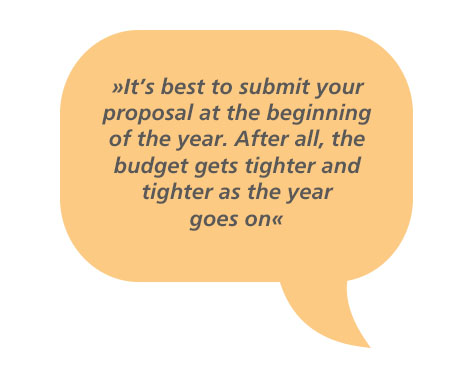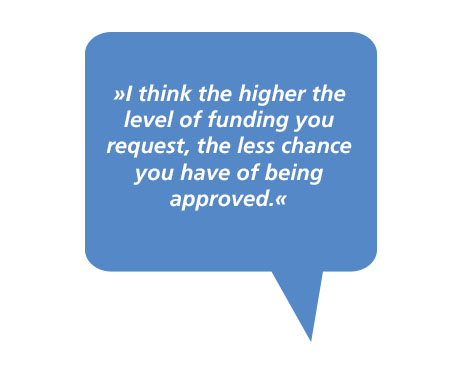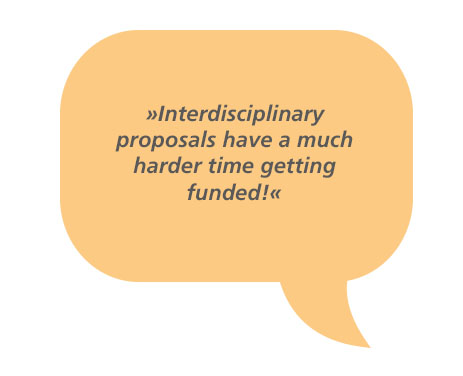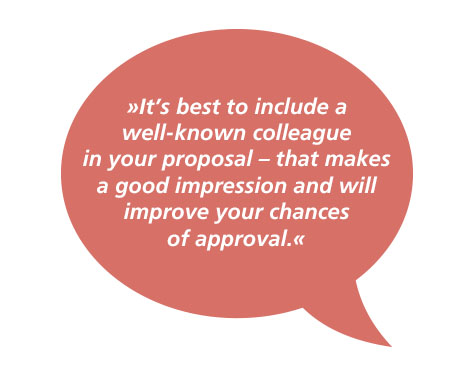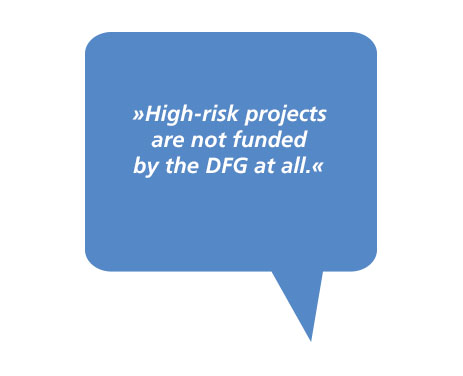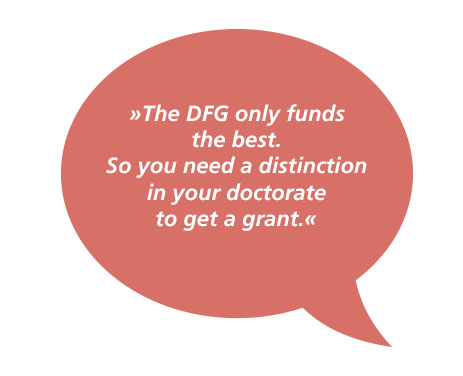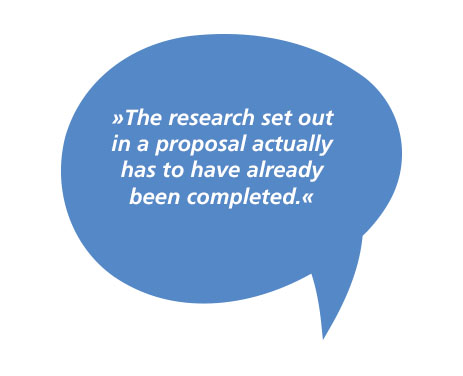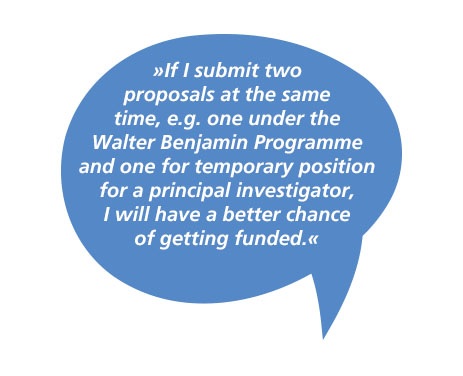The DFG receives at least 13,000 proposals for individual funding each year. All of these are processed, reviewed, assessed and ultimately approved or rejected. Funding can only be provided for the very best projects – about one third of the proposals submitted.
Our tips aim to help you prepare the best possible proposal for your project.
What makes a good and successful proposal?
Preliminary considerations
What do you want to achieve through your research? Think carefully about the questions you want to answer and discuss them with others. Are your ideas persuasive enough to convince people who are sceptical or not involved in your specific field?
German or English
Proposals can be submitted in English or German. Opt for the language that is commonly used in your scientific discipline. English-language proposals are welcome because this enables access to a broader group of potential reviewers. As a result, it is easier to avoid any potential bias.
Form and presentation
Reviewers are often quite busy – the more concise and clear the presentation of your project, the easier it will be to assess. Feel free to use illustrations to clarify complexities and avoid using unnecessary or little-known abbreviations.
State of research
Present the state of research on your project concisely but completely and make sure that everything can be understood without having to consult additional sources. Incidentally, reviewers notice right away if literature references are missing. Be sure to avoid this error!
Include your own preparatory work
Demonstrate that you are able to successfully implement the planned project by presenting your own preliminary work. You should refer to any relevant publications of your own, too. If the work relevant to the project has not yet been published, it makes sense to provide a more detailed description.
Formulate hypotheses / define goals
Research is usually hypothesis-driven. For this reason, you should deliberately formulate hypotheses or clear objectives for your project. The hypotheses or (depending on the subject) objectives of your project should follow on logically from the state of the art in research. At the same time, they provide an optimum outline template for the “Work Programme” section. Exploratory approaches also yield important findings, but these are often more subject to risk. For this reason, you should ensure they are very well substantiated, carefully describing the planned procedure as well as the handling of the data obtained.
Strategies and methods
Research cannot always be planned in detail in advance. Nevertheless, the strategy you wish to pursue in your (methodological) approach should be plausible. Include alternative strategies and explain how you will deal with any possible risks. And: good projects always take into account the entire spectrum of possible contemporary methods – not only those in which you are well versed.
Personnel planning
How many people are to be involved in the project? Which of them will complete which assignments when/why? This will provide the basis for your personnel requirements. You will find more details in the information on personnel categories(interner Link) (e.g. research assistants, technical assistants, research positions for doctoral students or postdocs). If you wish to recruit postdocs, you should provide a cogent justification of why the experience of a postdoc is needed to carry out the project.
Clear-cut collaborative relationships
Make sure the documents clearly state who is to be involved in the project. If you are planning a joint project, the allocation of the requested funds to several applicants must be plausibly justified based on the breakdown of responsibilities in the work programme. You should also enclose brief letters of confirmation from cooperation partners. It is not unknown for a person to be named in a proposal without even being aware of it.
Instrumentation
You can apply for funding to cover the cost of the scientific instrumentation required to carry out your planned research project. A prerequisite for obtaining funding instrumentation through the DFG is that the need is justified solely by the project and that this instrumentation does not form part of the regular resources of your department, your institute or your field of work.
Cost planning
The same applies to staff, instrumentation, travel and everything else: the scope of the funds applied for must derive consistently from the work programme. Incidentally, there is no upper limit: you can apply for as much funding as you need to successfully implement your project. However, the amount of funding must be proportionate to the anticipated gain in knowledge.
Evaluate the proposal prior to submission
If you simply submit a proposal without taking the appropriate care, you run a considerable risk of making unnecessary errors. So be sure to have at least one other person critically proofread it and make the most of the opportunity perfect it. If you have any formal questions, feel free to get in touch with your specialist DFG contact in advance. We will be more than happy to support you!
